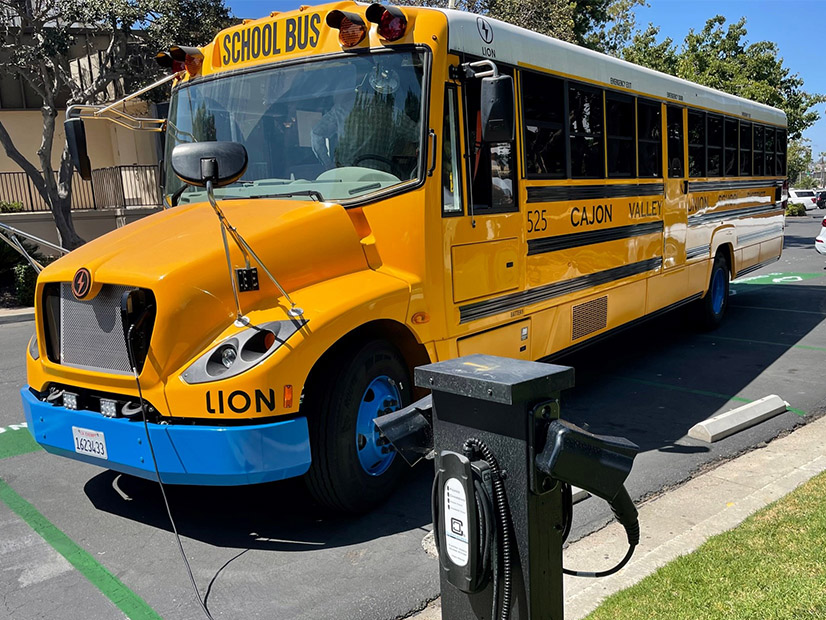North Carolina is using $30.1 million from its share of the Volkswagen settlement to replace “some of the dirtiest diesel buses in the state,” but only 43 of the 161 replacements will be electric.
However, those buses will account for more than half of the VW funds — $16.5 million — according to a Monday press release from Gov. Roy Cooper’s (D) office. A list of the awards showed that cost could be a key consideration for the smaller number of electric buses.
While the new diesel buses will average out between $105,000 and $125,000, the cost range on the electric buses will be $370,000 to $410,000. Shawn Taylor, public information officer for the Air Quality Division at the Department of Environmental Quality, said that the department had received applications for a range of technologies, electric, diesel and propane, and in some cases, a school district requested both electric and diesel.
He cited cost, infrastructure — specifically, issues with installing chargers — and other local factors as key considerations for individual school districts. New diesel buses must also comply with tighter emission standards than 20- to 30-year-old buses, Taylor said.
They also run on low-sulfur fuel that produces fewer nitrogen oxides and other emissions, according to the Diesel Technology Forum, an industry association.
Cooper said the new buses would be good “for the health and pocketbooks of North Carolinians as we continue on our path to clean transportation. Transitioning to cleaner school buses reduces greenhouse gas emissions, lowers costs to our schools, creates great manufacturing jobs and reduces pollution in our poorer communities.”
Some of the buses being replaced are more than 30 years old and “emit more than 20 times the [NOx] and particulate matter of today’s clean buses,” the press release said. The new buses will cut 126 tons of NOx emissions over their lifetime, the release said.
The new buses will also be going to mostly rural counties, including 80 vehicles heading to “schools in the 37 historically under-resourced counties that DEQ targeted for additional outreach and support during the application process.”
Taylor said the clean bus program has attracted a lot of attention across the state. “Folks are excited to see these buses on the street,” he said.
Oversubscribed
Reflecting national trends in school bus replacement programs, the North Carolina program was oversubscribed, with DEQ receiving 42 applications seeking more than $58 million for 330 clean school buses, according to the release.
EPA was similarly overwhelmed with 2,000 applications when it announced the first round of funding for zero-emission school buses from the Infrastructure Investment and Jobs Act. In that case, the agency decided to almost double the available funding, from $500 million to $965 million. The IIJA provides $5 billion in funding over five years for the program. (See EPA Doubles IIJA Funding for Electric School Buses.)
The Volkswagen settlement funds come from agreements between the German carmaker and the U.S. Justice Department, the Federal Trade Commission and California after it was found that the company had used “defeat devices” in its cars to cheat on emissions tests. North Carolina received $92 million, based on the number of cars with the defeat devices in the state.
Another $1 million from the settlement has been awarded to state agencies to install Level 2 electric vehicle chargers in public locations, such as state parks, museums, aquariums and state government office buildings, according to the Monday press release. More than 100 chargers will be installed at 25 locations, with 22 located in historically under-resourced communities and 13 being used to charge state government electric vehicles.
In a 2018 executive order, Cooper set a target of having 80,000 EVs registered in the state by 2025 and ordered state agencies to prioritize zero-emission vehicles when purchasing or leasing new cars.




